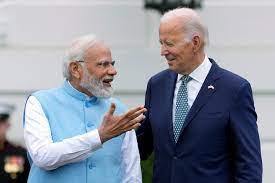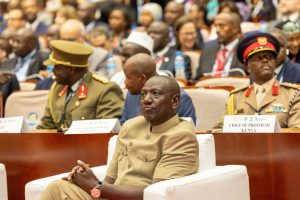The cordial diplomatic ties between the US and India was on the brink of collapse due to restrictions imposed relating to poultry and other agricultural products.
India had placed import restrictions on poultry from the US over avian influenza concerns. Other agricultural products were also included in the restrictions list due to influenza fears.
However, the two countries made significant steps to renew their diplomatic ties on Friday, September 8 at the World Trade Organization, as leaders of both countries met for the G20 summit.

The deal came as Indian Prime Minister Narendra Modi hosted US President Joe Biden. White House later released a statement praising the two leaders for the new pact.
“Today’s agreement resolves the remaining long-standing dispute and opens a new chapter of bilateral cooperation that will deepen the trade relationship between the United States and India,” stated the US Trade Representative’s (USTR) office.
As part of the agreement, India also agreed to reduce tariffs on certain US products such as frozen turkey and duck, alongside fresh blueberries and cranberries.
According to the US Trade Representative’s (USTR) office, the tariff cuts will boost economic opportunities for US producers in a critical market.
In June, both countries agreed to end six WTO disputes, with India also consenting to reduce tariffs on some US products such as chickpeas and lentils.
Besides courting India, the US has also been forging new ties targeting some African countries including Kenya.
The volume of US-led investments in the country increased significantly since President William Ruto assumed office.
Some political pundits opined that Ruto was leaning toward the US unlike his predecessor Uhuru Kenyatta who capitalised on his ties with China to develop infrastructure.
